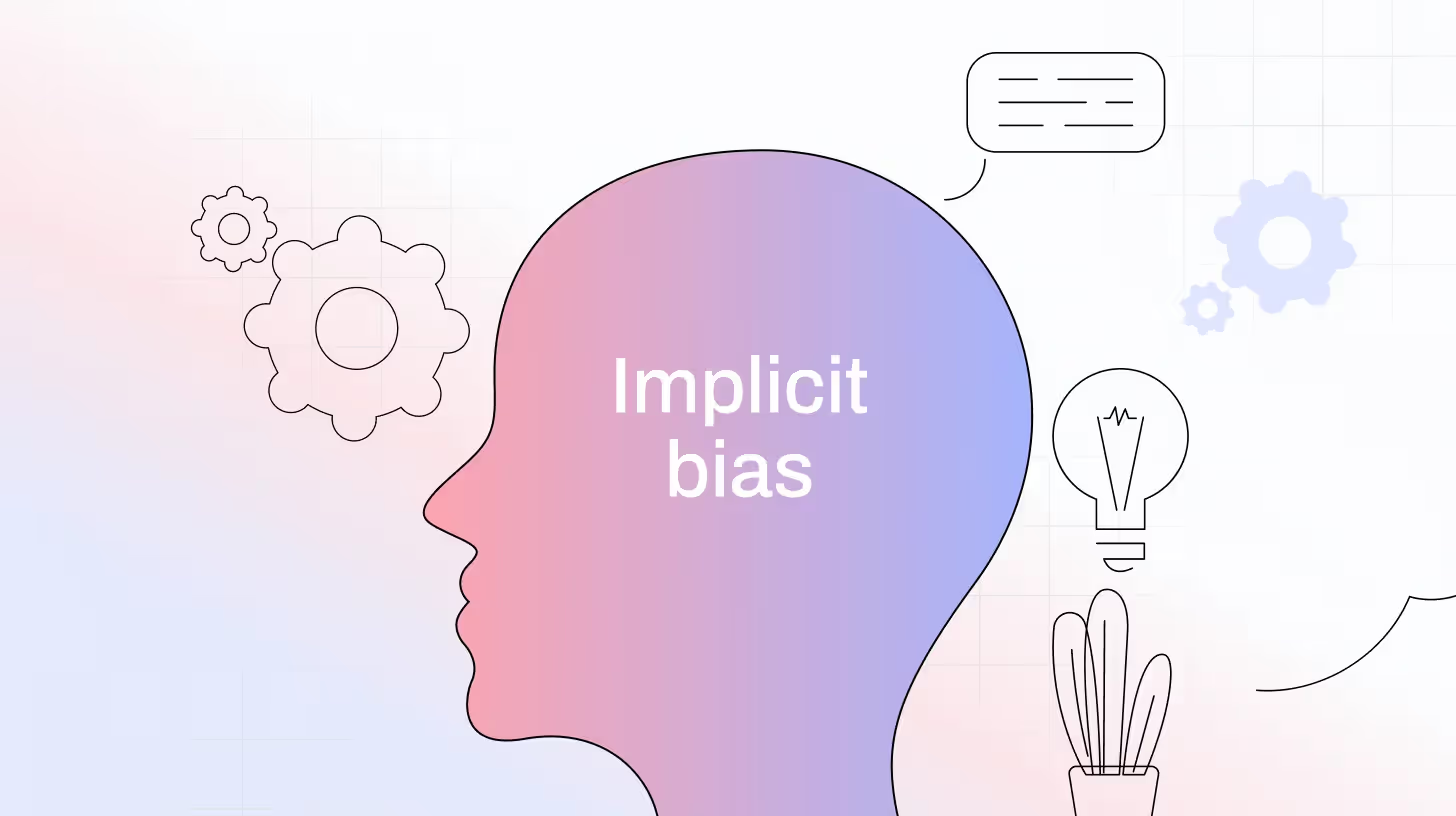Employee Morale Survey Guide: Questions, Benefits & Free Template

Let’s imagine a scenario.
Two top-performing employees of the company submitted their resignations suddenly. One of them cited "personal growth," the other simply said, "It’s time for a change." Nothing was wrong with their performance, projects were delivered on time, clients were happy, and the team appeared engaging in meetings, but in truth, their morale was slipping.
What if the company could have spotted the signs earlier?
That is where measuring the morale of a workforce is critical for an organization. Employee morale survey captures the undercurrents of a workplace sentiment before they become a wave of disengagement and turnover.
As Richard Branson said, 'Take care of your employees and they’ll take care of your business.'
Defining Workplace Morale
Workplace morale refers to the collective psychological and emotional well-being of employees. It is an invisible force that affects how motivated, satisfied, and engaged employees feel daily. High morale leads to positive energy, creativity, and a sense of purpose, while low morale can quietly erode productivity; even the most talented employees can feel disengaged.
Key driver of workplace morale
- Leadership communication and transparency
- Recognition and rewards
- Workload balance and autonomy
- Opportunities for growth and development
- Team dynamics and trust
- Physical and psychological safety
Signs of Low vs High Employee Morale
Did you know?
According to Gallup, low morale and disengagement cost companies $8.8 trillion in lost productivity globally in 2023 alone.
Recommended Read: Boost Productivity with an Employee Satisfaction Survey

What is an Employee Morale Survey?
An employee morale survey is a structured set of questions that helps organizations understand how employees truly feel about their work, team, leadership, and overall company culture. It captures insights on job satisfaction, job engagement, relationships with managers, and the overall work environment.
These surveys are designed to gather honest opinions on topics such as motivation, communication, recognition, and trust. When done right, confidentiality and consistency provide employees with a safe space to speak up and give leaders the insights they need to enhance the work experience.
Recommended read: The Feedback-Driven Workplace: Why Listening Is the New Leadership Skill
Benefits Of Conducting an Employee Morale Survey
Here are the top benefits of regularly running an employee morale survey:
Catches disengagement before it becomes turnover
An employee morale survey helps identify early warning signs, such as burnout, dissatisfaction, and feelings of being undervalued, before they escalate.
Did you know?
Disengaged employees cost companies 34% of their annual salary in lost productivity (Gallup).
Improve Communication and Transparency
These surveys provide a safe space for employees to express their opinions and concerns, creating a culture of transparency and building trust across the organization.
Boost engagement and innovation
When morale is high, employees feel more energized, collaborative, and creative. This directly fuels better performance and problem-solving.
Enhance Employee Retention
Employees who feel heard are more likely to stay. Morale surveys provide leaders with the data they need to foster a growing workplace. A hospitality group utilized morale surveys to identify staff frustration over limited career growth opportunities. They launched a training program and saw a 15% improvement in retention within six months.
Helps Leaders Make Smarter Decisions
Employee morale surveys offer clear, actionable insights that help managers and HR teams make informed choices. With real feedback in hand, leaders can design strategies that actually work.
Highlights What Needs Fixing
Surveys shed light on specific areas that require attention, such as work culture, management practices, compensation, and career growth. Once identified, these issues can be addressed directly, leading to happier, more productive teams.
Drive Continuous Improvement
When you consistently survey and act on feedback, it fosters a culture of transparency and growth. Employees see that change is possible and that their input drives it.
Recommended read: Survey for Employee Satisfaction: Why It Matters and How to Get It Right

What Does an Employee Morale Survey Include?
When designing an employee morale survey, it's essential to cover all the aspects of the workplace experience. To make the insights measurable and trackable, it’s essential to integrate a morale rating scale, such as 1 to 5 or “Strongly Disagree” to “Strongly Agree.” This quantifies how employees feel and helps you monitor morale trends over time.
Here are some sections that every employee morale survey should include:
General Job Satisfaction
Employees who find their work purposeful and aligned with their skills are far more engaged and loyal.
Sample topics to cover:
- Overall job satisfaction
- How meaningful their work feels
- Whether their talents are being fully used
Work-Life Balance
Employees with poor work-life balance are more prone to burnout, one of the fastest morale-killers.
Sample topics to cover:
- Flexibility in working hours
- Remote/hybrid options
- Support for mental and physical well-being
Supervisor & Management Feedback
A great manager can elevate morale; a poor one can undo it overnight.
Sample topics to cover:
- Communication effectiveness
- Clarity of expectations and goals
- Whether employees feel appreciated and supported
Facilities & Work Environment
Outdated tools or an uninspiring workspace can quietly chip away at motivation and focus.
Sample topics to cover:
- Comfort and safety of workspace
- Quality of tools, equipment, and technology
- The overall office or team atmosphere
Career Development Opportunities
Morale dips quickly when employees feel stuck with no room to grow.
Sample topics to cover:
- Access to training or learning programs
- Opportunities for advancement
- Support for personal and professional development
Compensation & Benefits
Even if compensation isn’t the top motivator, perceived unfairness can breed resentment and disengagement.
Sample topics to cover:
- Fairness of pay relative to responsibilities
- Quality of benefits (e.g., health, PTO, parental leave)
- Comparison to industry standards
The Best Employee Morale Survey Example Questions
A recent Gallup study of over 150,000 U.S. employees revealed something troubling:
- Only 30% said they were engaged in their work.
- A massive 52% reported being “not engaged.”
- And 18% said they were “actively disengaged.”
That means 7 out of 10 employees may be feeling disconnected, unheard, or unsupported a red flag for any business that values retention, productivity, and culture.
An effective employee morale survey can catch these warning signs early. Below are some of the best morale survey questions, organized by topic:
Overall Job Satisfaction
- On a scale of 1 to 10, how satisfied are you with your current role?
- Do you feel your work is making a huge impact in the company?
- Do you look forward to coming to work each day?
- Are your skills and talents being used effectively in your role?
Emotional Well-Being & Motivation
- On most days, how would you describe your emotional state at work?
- Do you feel supported by your team when you're going through a tough time?
- Do you feel motivated to do your best work every day?
- What drives you to stay engaged in your role?
Recommended read: Why an Employee Wellness Survey Are Essential for a Thriving Workplace
Trust in Leadership
- Do you feel leadership communicates clearly and transparently?
- Do you trust your manager to act in your best interest?
- How confident are you in the company’s direction and goals?
- Do you agree that management acts on employee feedback?
Recognition & Appreciation
- Do you feel appreciated by your colleagues?
- Do you feel recognized for your work and accomplishments?
- How often do you receive positive feedback from peers or managers?
- Is there a formal system in place for recognizing employee contributions?
Employee performance and collaboration
- Do you feel empowered to take ownership of your work?
- Are you satisfied with your current level of productivity?
- Are you comfortable sharing ideas or feedback with your colleagues?
- Do you feel your contributions are considered in team decisions?
Work-Life Balance
- Do you feel you have enough time to recharge outside of work?
- Are your working hours reasonable and sustainable?
- Do you feel supported when you need to take time off for personal matters?
- Is the company flexible with remote work or adjusted schedules when needed?
Open-Ended Questions
- What’s one thing we could do to improve employee morale?
- Is there anything about your job that frustrates or concerns you?
- What keeps you at this company, or what might make you leave?
- Is there anything else you’d like to share about your experience working here?
Employee Morale Survey Template for free
Thank you for taking the time to share your thoughts. Your responses are anonymous and will help us improve your work experience.
1. Do you feel respected and valued in your workplace?
☐ Yes ☐ No ☐ Sometimes
2. To what extent do you feel your manager/supervisors genuinely care about your well-being?
Scale: 1 (Not at all) to 5 (Very much)
3. How would you describe the overall morale at your workplace?
☐ Very Low ☐ Low ☐ Neutral ☐ High ☐ Very High
4. How often do you feel recognized for the work you do?
Scale: 1 (Rarely) to 5 (Very Often)
5. Do you believe the organization genuinely cares about its employees?
Scale: 1 (Not at all) to 5 (Very much)
6. How manageable is your current workload?
☐ Not manageable ☐ Sometimes manageable ☐ Completely manageable
7. Does your work give you a sense of purpose and accomplishment?
☐ Never ☐ Occasionally ☐ Often ☐ Always
8. How is job-related stress impacting your personal life?
(Open-ended)
9. How would you describe your relationship with your direct supervisor?
☐ Poor ☐ Fair ☐ Good ☐ Excellent
10. How effective is communication between you and your coworkers?
☐ Ineffective ☐ Needs improvement ☐ Good ☐ Excellent
11. How secure do you feel in your current position?
☐ Not secure ☐ Somewhat secure ☐ Very secure
12. How do you see your chances of career growth or promotion here?
☐ Limited ☐ Moderate ☐ Strong ☐ Excellent
13. How satisfied are you with your salary and benefits package?
Scale: 1 (Very Unsatisfied) to 5 (Very Satisfied)
14. Is there anything else you'd like to share to help us improve?
📝 Your comments here:
Improve Morale With TheySaid Before It Becomes a Problem
Employee morale isn’t just an HR metric; it directly impacts productivity, retention, and your bottom line. TheySaid helps you stay ahead with fast, intelligent morale surveys designed to uncover hidden insights. Our AI does the heavy lifting, analyzing responses, identifying patterns, and delivering next steps. Whether you're scaling culture or solving workplace challenges, TheySaid keeps your finger on the pulse of your people before issues become exits.
Start your first morale survey with TheySaid — it’s free
Key Takeaways
- Spot burnout early, don’t wait for resignations to reveal morale problems.
- Employee morale is invisible, but its impact is massive.
- Use morale surveys to catch disengagement before it turns into turnover.
- Anonymous feedback = honest insights = better leadership decisions.
- High morale fuels creativity, retention, and performance.
- Great cultures aren’t built by luck; they’re built by listening.
- TheySaid helps you measure, track, and fix morale before it's too late.
FAQs
What’s the difference between an employee morale survey and an engagement survey?
Employee morale surveys focus on short-term emotions and satisfaction, while engagement surveys measure long-term commitment and motivation toward work.
How often should I run an employee morale survey?
It depends on your goals. Many companies run morale surveys quarterly or twice a year. You can also use pulse surveys monthly for ongoing check-ins.
What should I include in an employee morale survey?
Key areas include job satisfaction, team dynamics, recognition, workload, leadership, and growth opportunities. Ask both quantitative (scale-based) and open-ended questions.
















.svg)